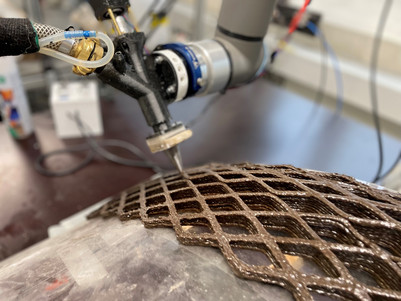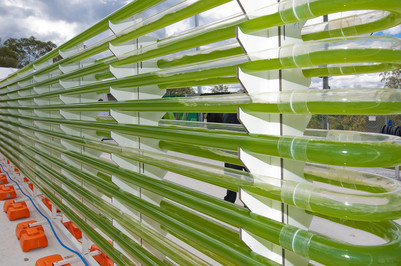
UIA 2023 x Royal Danish Academy: Science Track
The Royal Danish Academy is leading the Science Track of the UIA World Congress of Architects 2023 CPH. Under the direction of General Reporters Professor Mette Ramsgaard Thomsen and Associate Professor Martin Tamke a Scientific Committee of leading international researchers and practitioners has been appointed.
The Scientific Committee has for more than two years critically questioned how to understand and strengthen architecture’s role in fulfilling the SDG vision to Leave No One Behind.
The Committee’s work has been key to the creation of the six Congress themes and led to the formulation of six Science Panels. Together the panels examine the multiple ways in which architecture can activate its profound agency in shaping our societies and help drive the fulfilment of a sustainable, equitable and inclusive future for all.
The Science Panels are chaired by outstanding researchers and practitioners from across the world that collectively bring together a percipient set of specialised expertise, localised knowledge and innovative, critical thinking.
Call for Papers
In 2022 the Science Track sent out a call for papers for the six Science Panels inviting academics, practitioners, independent scholars, civil society organisations and more to submit. More than 750 papers were submitted from 77 countries. All papers have been double blind peer reviewed, and 296 papers invited to present at the UIA World Congress 2023 in Copenhagen.
One of the central remits of the Science Track is to enable exchanges and learnings across different knowledge and practice silos. The call for papers therefore invited submissions not only in the traditional Research Paper format, but also Narrative Essays, Visual Essays and Argumentative Essays to expand the possibility of transdisciplinary knowledge exchange and inclusion of voices that are not commonly part of academic and professional discourse.
All invited papers will be published by Springer in six proceedings volumes under their Sustainable Development Goals series.
A Context of Urgency
The UIA World Congress 2023 CPH lies at a turning point. It is 7 years since the collective journey towards the 2030 Agenda began, and now 7 years remain to fulfill the ambition of the UN Global Goals’s universal end to poverty, protection of the planet, and peace and prosperity to all people. In this context the Science Track and the Scientific Committee finds it paramount that we as a global community and as architects urgently move from speculation to action.

Paper Presentations and Debate Sessions
In support of this ambition the Science Track looks forward to collectively explore and spar the many emerging ways in which architecture and the built environment can engage with the SDGs and help inform the urgently needed transformation of our societies.
At the Congress the Panel Chairs of the six Science Panels will head and curate sessions of paper presentations for their respective panels and subthemes. Through dedicated exchange and debate driven sessions the Science Track will ask how critically engaged design, policy making and a comprehensive understanding of the SDGs can challenge the way architecture conceives, forms and changes the social-environmental balances we live in provoking new perspectives, new alliances and concrete action.
Pre-events
During 2022 the Science Track Panel Chairs hosted pre-events for their respective panels to initiate the conversation around architecture and the SDGs prior to the Congress. An inspiring and impressive array of expertise was brought together for critical reflection and knowledge exchange in online symposia and physical events, exploring themes central to understanding the role of architecture in supporting the SDGs.
The Scientific Committee
17 leading international researchers represent and connect an array of architectural expertise and contexts:
General Reporters
- Mette Ramsgaard Thomsen - Professor and Founder of the Centre for IT and Architecture research group (CITA) at the Royal Danish Academy - Architecture, Design, Conservation (DK)
- Martin Tamke - Associate Professor at the Royal Danish Academy - Architecture, Design, Conservation
Special Advisors
- Katherine Richardson - Professor in Biological Oceanography and leader of Sustainability Science Centre, University of Copenhagen
- Chris Luebkeman - Leader of the Strategic Foresight Hub in the office of the President, ETH Zürich
- Camilla Ryhl - Research Director, Bevica Fonden
- Thomas Bo Jensen - Head of Research, Aarhus School of Architecture
Members of Panels
Panel 1: Design for Climate Adaptation
Panel 1: Design for Climate Adaptation
Architecture faces a grave challenge in a world struck by climate change. The built environment must adapt to changing weather patterns, higher temperatures and flooding.
Panel Chairs
- Billie Faircloth - Partner and Research Director at KieranTimberlake, Adjunct Professor, University of Pennsylvania (US)
- Maibritt Pedersen Zari - Educator and Researcher. Associate Professor, Auckland University of Technology, Aotearoa New Zealand
Panel 2: Design for Rethinking Resources
Panel 2: Design for Rethinking Resources
Resources are getting scarcer, and architects need to address this issue. By using novel materials and recycling on a much greater scale, architecture can change its approach to resources.
Panel Chairs
- Carlo Ratti - Professor and Director of the Senseable Lab, MIT (US), Founding Partner of Carlo Ratti Associati (IT)
- Mette Ramsgaard Thomsen - Professor and Founder of the Centre for IT and Architecture research group (CITA) at the Royal Danish Academy - Architecture, Design, Conservation (DK)
Panel 3: Design for Resilient Communities
Panel 3: Design for Resilient Communities
Communities are people, and people create communities. Architects can positively impact the lives of millions, even billions, by building for the future, and creating communities that last.
Panel Chairs
- Anna Rubbo - Senior Researcher, Center for Sustainable Urban Development (CSUD), The Climate School, Columbia University (USA)
- Juan Du - Senior Researcher, Center for Sustainable Urban Development (CSUD), The Climate School, Columbia University (USA)
Panel 4: Design for Health
Panel 4: Design for Health
Healthy living takes place in healthy environments, and architects can help improve public health through careful planning, building and consideration.
Panel Chairs
- Arif Hasan - Former Visiting Professor NED University Karachi, member of UNs Advisory Group on Forced Evictions (PA)
- Christian Benimana - Senior Principal and Managing Director at MASS Design Studio (RW)
Panel 5: Design for Inclusivity
Panel 5: Design for Inclusivity
A sustainable world is one with room and consideration for all people. Architects must design with inclusivity in mind, and take care to understand the needs of the many different people that inhabit the globe.
Panel Chairs
- Magda Mostafa - Autism Design Consultant, Progressive Architects. Associate Professor of Design, Department of Architecture, the American University, Cairo (EG )
- Ruth Baumeister - Professor of Theory and History, Aarhus School of Architecture (DK)
Panel 6: Design for Partnerships for Change
Panel 6: Design for Partnerships for Change
Architects must foster partnerships, and work across many different professions and skills to create a sustainable and inclusive future.
Panel members
- Sandi Hilal - Co-Director of DAAR (Decolonizing Architecture Art Research), Lise Meitner Visiting Professor at Lund University Department of Architecture and the Built Environment
- Merve Bedir - Co-founder of the Center for Spatial Justice, Aformal Academy, and Kitchen Workshop












